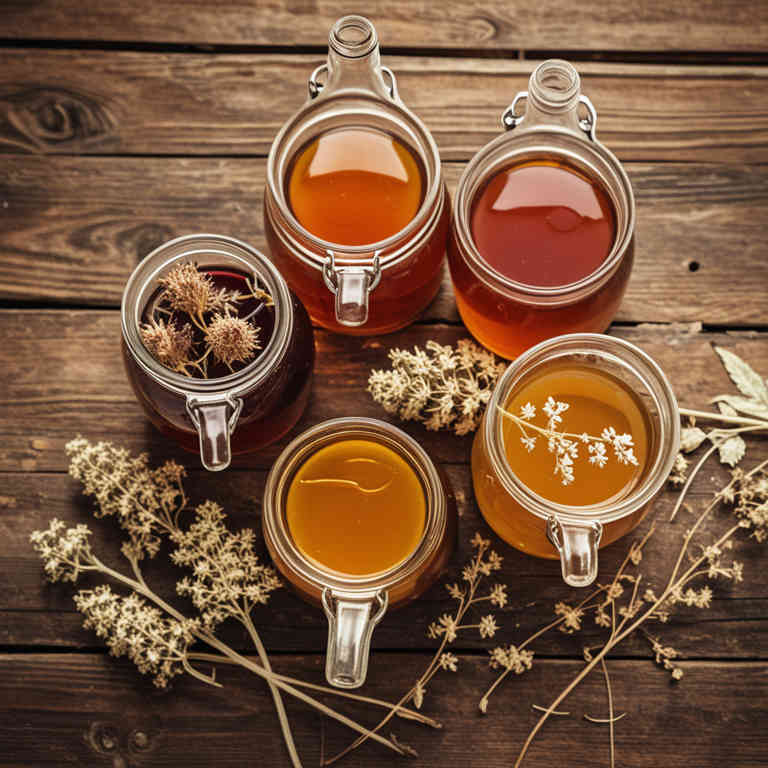Hydrastis canadensis syrup for medicinal use

Hydrastis canadensis syrup is a herbal preparation made from the root of the goldenseal plant, which is native to North America.
It is commonly used in herbalism for its antimicrobial, anti-inflammatory, and astringent properties. The syrup is often employed to treat digestive issues such as indigestion and ulcers due to its ability to soothe the gastrointestinal tract. It may also be used externally for skin conditions and as a natural remedy for sore throats.
However, it is important to note that goldenseal can have potential side effects and should be used with caution.
Uses
Hydrastis canadensis syrup has been used to treat digestive issues, skin conditions, and respiratory ailments for centuries.
Historically, it was a key ingredient in traditional Native American medicine, where it was valued for its antimicrobial and anti-inflammatory properties. In the 19th century, it became a popular remedy in European and American herbal medicine for conditions like whooping cough and digestive disorders. Today, it is still used in some alternative medicine practices for its potential to support gut health and reduce inflammation.
However, its use has declined with the rise of pharmaceutical alternatives, though it remains a subject of interest in modern herbal research.
Benefits
Hydrastis canadensis syrup has health benefits such as supporting digestive health, reducing inflammation, and promoting skin healing.
It is commonly used to alleviate symptoms of digestive disorders like indigestion and ulcers due to its antimicrobial and anti-inflammatory properties. The syrup may also help in detoxifying the body and boosting the immune system. Its active compounds, such as berberine, contribute to its therapeutic effects.
This herbal preparation is often utilized in traditional medicine for its broad range of wellness benefits.
Constituents
Hydrastis canadensis syrup active constituents include berberine, hydrastine, canadine, and other alkaloids.
These compounds are known for their antimicrobial, anti-inflammatory, and digestive properties. Berberine, in particular, is recognized for its ability to support gut health and may help in the treatment of gastrointestinal infections. Hydrastine and canadine contribute to the syrup's expectorant and tonic effects, making it useful for respiratory and digestive ailments.
Overall, these active constituents work synergistically to promote overall health and wellness.
Preparation
To make Hydrastis canadensis syrup, first gather the fresh or dried rhizomes of the plant, commonly known as goldenseal.
Wash the rhizomes thoroughly and slice them into small pieces to increase surface area for extraction. In a saucepan, combine the sliced rhizomes with water and bring to a gentle boil, then reduce heat and let simmer for about 30 minutes. Strain the liquid through a fine mesh strainer or cheesecloth to remove plant material.
Finally, mix the filtered liquid with a sweetener such as honey or sugar syrup, and store in a sterilized glass jar in the refrigerator.
Side Effects
Hydrastis canadensis syrup may lead to gastrointestinal upset, including nausea, vomiting, and diarrhea, due to its potent alkaloid content.
It can also cause increased heart rate and anxiety in some individuals. Long-term use may result in liver damage or other systemic effects. The syrup is contraindicated for pregnant or breastfeeding women and those with certain medical conditions.
It is important to consult a healthcare professional before use to minimize potential risks.